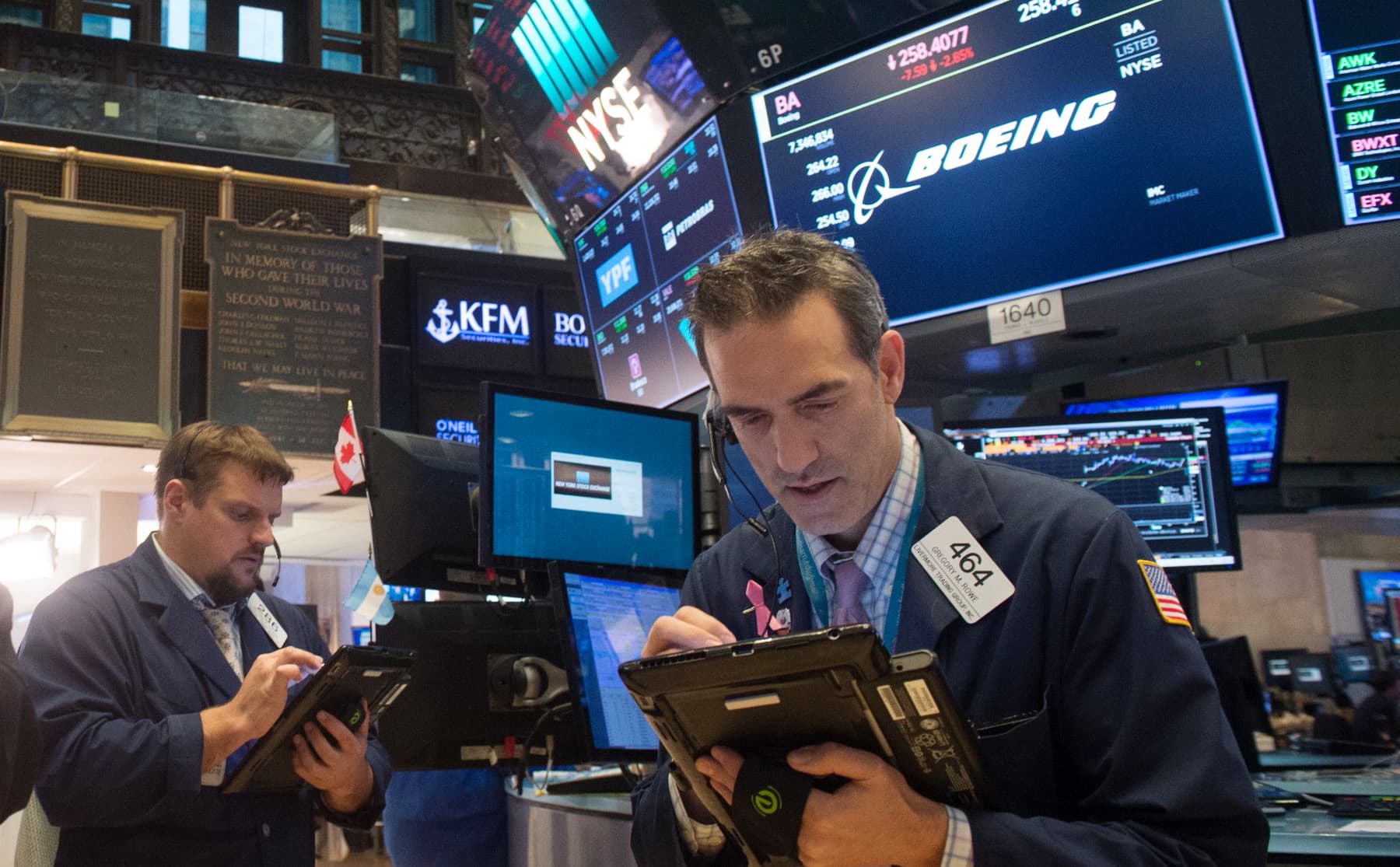Traders work on the floor at the closing bell of the Dow Industrial Average at the New York Stock Exchange.
Bryan R. Smith | AFP | Getty Images
(This story is part of the Weekend Brief edition of the Evening Brief newsletter. To sign up for CNBC’s Evening Brief, click .)
Many Wall Street analysts remain publicly bullish on Boeing even as the grounding of the 737 Max stretches into the new year with each negative headline taking the stock down another peg. Analysts are standing their ground, seeing a rebound in 2020 by double digits once the Max returns to the skies.
The beleaguered aerospace company announced Monday that it was suspending production of the plane, which has been grounded in the United States since March 13, and its shares are down 2.6% for the week. The stock has been one of the worst large cap performers this year, falling more than 24% since March 1, but analysts have largely stuck by it.
Analysts were particularly bullish early in the year, after the first crash but before the Federal Aviation Administration grounded the plane. Of those surveyed by FactSet, 83% gave the stock a buy rating as of Feb. 28, with an average target price of more than $450 per share. After some downgrades, analysts are split roughly in half between buy and hold ratings.
Not a single analyst went so far as to recommend selling Boeing shares, despite the big slide. Currently, none of the 23 analysts have a sell rating.
They did reduce their price targets, but those still remain well above the stock’s price. The average 12-month price target is now $388 per share, about a 14% premium to where it currently trades.
Despite the ever-growing delay, bulls may be looking at the saga of the 737 Max and macro events like the trade war with China as one-off events that the company will bounce back from, said Ken Herbert of Canaccord Genuity, who has a neutral rating and $370 price target for Boeing.
“I think people that are still bullish on the stock are sort of falling back on the longer term fundamentals, which are generally encouraging, at least on the commercial side,” Herbert said.
Strong backlog
The aerospace industry differs from other areas because it gives investors a clear look at future business through company backlogs, giving bulls confidence that the stock would recover, said Richard Safran of Buckingham Research Group.
“Aerospace investors are a little bit unique in one respect, and that is they have far more confidence in taking a two-year outlook than your average Joe,” said Safran, who has a neutral rating and a $365 target on the stock.
Once the Max is approved to fly, Boeing will see a surge in cash flow and could potentially buy back stock, Herbert said, but he still questions the long-term impact of the Max scandal and issues elsewhere in Boeing’s business.
“For me, the bigger issue is company specific as you come out of the sugar high on the Max and people realize, well, what do they need to do to their portfolio longer term and just how damaged is the Max as a brand,” Herbert said.
The delay could also impact orders from China, Safran said, where the Commercial Aircraft Corp of China (COMAC) is having certification issues with one of its planes.
“This year – what looks like over a year – grounding for the Max has now given the Chinese a bit of time to catch up,” Safran said.
The Max was grounded around the world following two fatal crashes, and Boeing’s target it for its return has been repeatedly pushed back as the company seeks regulatory approval. FAA chief Steve Dickson has said the re-certification process for the plane will not be done before the end of the year, and there is expected to be a gap between the time of approval and when the Max carries commercial passengers again.
‘Clean’ year?
The decision to suspend production won’t create huge savings, according to JP Morgan, which says Boeing’s overhead and labor costs will remain and the company will need to support suppliers during the downtime.
JP Morgan is one of the firms that maintains its buy rating, saying Boeing is “in a good position to capitalize on its robust backlogs,” but its analysts have cut their price target and are sounding cautious in their communications to clients.
“The path between today and a ‘clean year’ contains risks, such as we saw with today’s production halt, which had seemed far less likely several weeks ago,” JP Morgan said in a note on Monday.
One of the more bearish outlooks comes from Goldman Sachs, which has a neutral rating on the stock and lowered its price target to $301 from $324 earlier this week. That’s the lowest target of major firms. Goldman expects the Max to be certified by the FAA in April and for deliveries to resume in July.
“We continue to see a high degree of uncertainty around the aircraft, given multiple steps still required to resume deliveries to airlines, where each step still has a wide range of potential outcomes,” Goldman Sachs said in a note Tuesday.
The Max’s grounding has spilled over into other industries as well, impacting Boeing’s suppliers and the airlines that agreed to buy the plane. After the manufacturer announced that it was suspending production, Southwest Airlines and American Airlines both announced they were extending their planned cancellations through April.
CNBC’s Michael Bloom contributed to this story.
